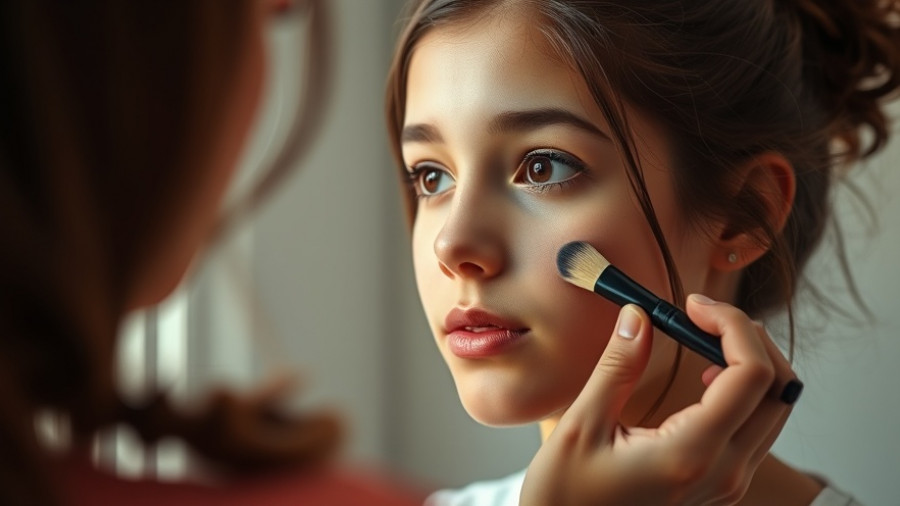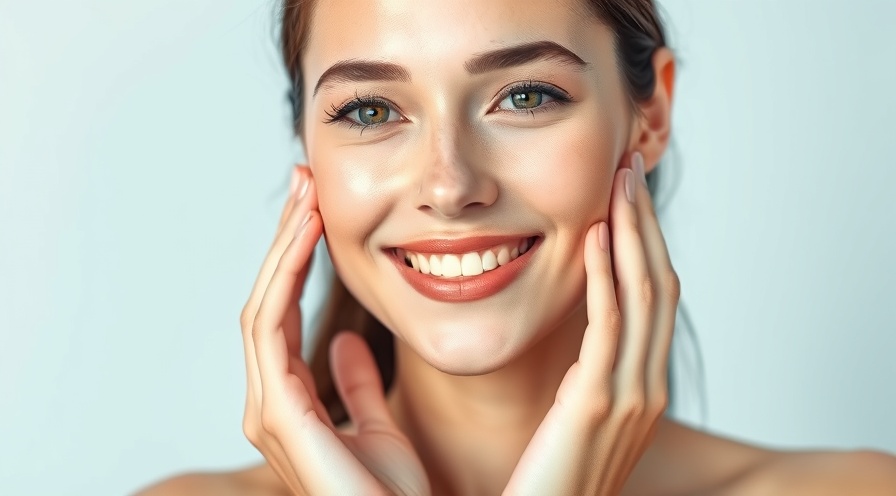
Makeup Safety for Teenagers: A Concern for Sensitive Skin
As teenagers begin exploring makeup, it's essential for them to consider the implications for their skin, especially if they have sensitive skin. The skin undergoes numerous changes during adolescence, and as it adapts, selecting suitable cosmetics becomes crucial for maintaining health and confidence.
Understanding Skin Sensitivity: Why It Matters
Skin sensitivity can be exacerbated by the hormonal changes that come with adolescence. Many teenagers find that products which seem to work for their friends can lead to rashes, flaky skin, or breakouts for them. Educating them about skin reactivity is key; not everything that looks good feels good!
Identify Makeup Ingredients That Cause Reactions
It's important for beginners to know their makeup ingredients. Common offenders include:
Fragrance: Often included for scent, it is one of the top irritants, causing redness and allergic reactions.
Alcohol Denate: Found in many products, it can dry out the skin, enhancing sensitivity.
Comedogenic Oils: Ingredients like coconut oil can cause breakouts when applied on pores prone to clogs.
A more minimalist approach may serve beginner users well, especially those with sensitive skin. Researching product ingredients and opting for fewer additives can help.
Alternative Ingredients to Consider
For teens eager to experiment with cosmetics while preserving their skin’s health, opting for gentle formulations can make a world of difference. Here are some alternatives:
Aloe Vera: A soothing agent that hydrates without clogging pores.
Mineral-based Foundations: Typically lighter and less irritating, they're a solid choice for those with sensitive skin.
Natural Oils: Look for oils that are non-comedogenic, like jojoba, which can actually help manage dryness without aggravating skin.
Practical Tips for a Beginner’s Makeup Routine
Establishing a safe makeup routine doesn't have to be overwhelming. Here are some practical steps:
Start Simple: Begin with a tinted moisturizer or mineral powder rather than heavy foundations.
Patch Testing: Always test a small amount of product on your skin first to check for reactions.
Keep It Clean: Regularly clean makeup tools and brushes to avoid bacteria build-up that can lead to breakouts.
By making informed choices, teens can enjoy their newfound interest in makeup without sacrificing their skin’s health.
Take Charge of Your Makeup Journey!
In conclusion, makeup exploration can be fun and fulfilling for teenagers, but it necessitates mindfulness concerning product ingredients and skin reactions. Equip yourself with knowledge about safer options and minimalist techniques for a healthy complexion. Dive into the world of makeup not just to look good, but to feel good inside and out!
 Add Row
Add Row  Add
Add 




Write A Comment